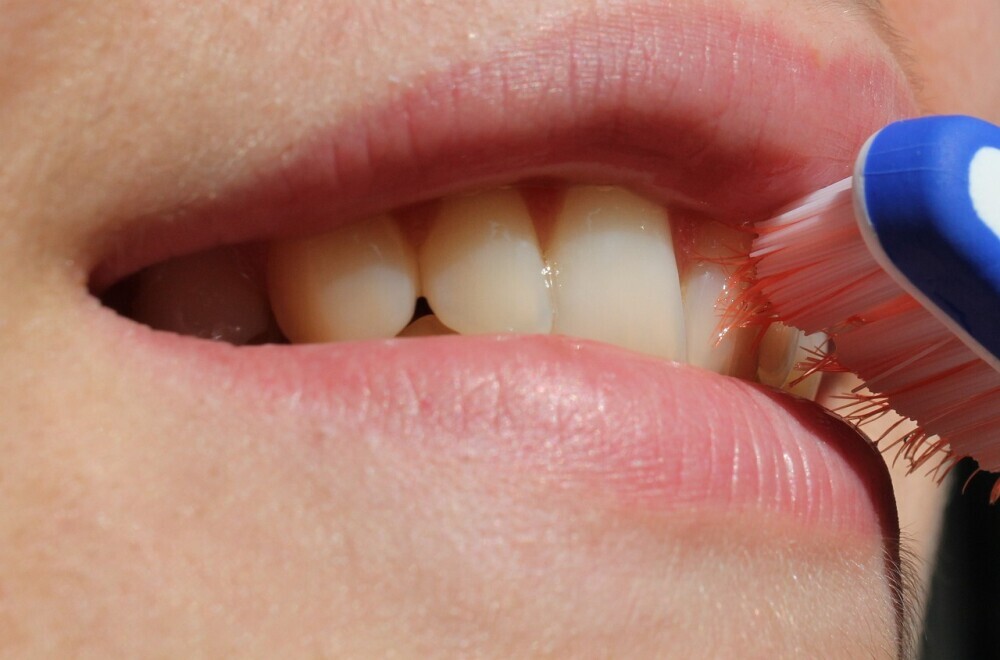Introduction
Ensuring your baby’s dental health starts from day one. As a parent, it’s crucial to understand the basics of baby dental care, from teething to establishing a routine, and how to create positive dental experiences. This guide provides everything you need to know, including the how to for baby’s teeth, along with practical tips to help keep your baby’s teeth and gums healthy.

Table of Contents
1. Introduction to Baby’s Dental Care
Proper dental care for your baby is crucial for their overall health. Many parents mistakenly believe that baby teeth aren’t important because they eventually fall out. However, healthy baby teeth help in the development of speech, chewing, and guiding adult teeth into place. Establishing a good oral hygiene routine early on can set the foundation for lifelong dental health.
2. Importance of Early Dental Care for Babies
The sooner you start caring for your baby’s teeth, the better. According to the American Academy of Pediatric Dentistry, children should visit a dentist by their first birthday. Early dental care helps prevent decay and other oral health problems that could affect your child’s general health. Early intervention also makes it easier to instill good habits in children, ensuring healthier teeth as they grow.
3. Statistics on Dental Health in Children
Dental health is often overlooked, even though nearly 1 in 5 children aged 2 to 5 have untreated cavities. Early childhood caries is the most common chronic disease among children, affecting their quality of life. Taking proactive steps to prevent dental issues can save parents time, money, and worry in the future.
4. Overview of Baby’s Dental Development from Birth
A baby’s first teeth usually emerge between 6 and 10 months of age. However, the foundation for their dental health is laid even before birth, as the development of primary teeth begins in the womb. Here’s a general timeline:
- 0–6 months: No visible teeth, but dental development is occurring.
- 6–12 months: First teeth (usually the lower front teeth) start to erupt.
- 12–18 months: Several more teeth appear, including molars.
- 18–36 months: Most primary teeth have erupted by age 3.
5. Identifying and Understanding Teething Signs
Teething can be a challenging time for both babies and parents. Knowing what to expect can help alleviate some of the stress.
Common Signs of Teething
- Excessive drooling
- Biting or gnawing on objects
- Irritability or fussiness
- Swollen or tender gums
- Disrupted sleep patterns
Timeline of Typical Teething Stages
- 6–12 months: First teeth begin to erupt.
- 12–18 months: Molars appear, which can be more painful than the earlier teeth.
- 18–24 months: Canine teeth come in.
- 24–36 months: Second molars erupt, completing the primary set.
How Teething Affects Baby’s Mood and Health
Teething can cause discomfort and irritability in babies. Some may experience mild fevers or changes in appetite. Providing teething rings or gently massaging the gums can help soothe your baby during this time.
6. Establishing a Routine for Oral Hygiene
Starting a dental routine early helps prevent oral health issues and sets the stage for healthy habits.
When to Start Brushing Baby’s Teeth
Begin cleaning your baby’s mouth even before their first tooth appears by wiping the gums with a damp cloth. Once the first tooth emerges, use a soft-bristled toothbrush and a tiny amount of fluoride toothpaste (about the size of a grain of rice).
Selection of Toothbrush and Toothpaste Suitable for Babies
Choose a toothbrush with a small head and soft bristles designed for infants. Use toothpaste that is specially formulated for babies and contains fluoride for cavity protection.
Demonstrating Correct Brushing Techniques for Infants
Gently brush in small circular motions on the front, back, and chewing surfaces of the teeth. Ensure you’re reaching all the teeth, even the molars. Brushing should be done twice a day.
7. Nutrition and Its Impact on Baby’s Dental Health
A balanced diet plays a significant role in your baby’s dental development.
Foods That Support Healthy Teeth Development
- Dairy products: Rich in calcium, they help strengthen tooth enamel.
- Leafy greens: Contain vitamins and minerals that support gum health.
- Fruits and vegetables: High in fiber, they help clean teeth and stimulate saliva production.
Harmful Foods and Drinks to Avoid
- Sugary snacks and drinks: Can lead to cavities.
- Sticky foods: Tend to cling to teeth, causing decay.
- Juices: Often contain added sugars; limit to small amounts.
Role of Breastfeeding in Dental Health
Breastfeeding has been linked to lower risks of early childhood caries compared to bottle-feeding. However, prolonged nighttime breastfeeding without brushing can increase the risk of tooth decay.
8. Potential Dental Issues in Infants
Being aware of potential dental problems can help you address them early.
Common Dental Problems Like Early Childhood Caries
Tooth decay in young children is known as early childhood caries. It’s often caused by prolonged exposure to sugary drinks or improper brushing.
Signs That Indicate Dental Issues
- White or brown spots on teeth
- Swelling or bleeding of the gums
- Difficulty eating or chewing
When to Consult a Pediatric Dentist
Visit a pediatric dentist if you notice any signs of tooth decay or gum problems, or if your baby has not had a dental checkup by their first birthday.
9. Creating a Comfortable Environment for Dental Visits
Making dental visits a positive experience can help reduce anxiety.
Choosing a Pediatric Dentist
Look for a pediatric dentist who specializes in treating young children and has a child-friendly office environment.
Preparing Your Child for the First Dentist Visit
Talk to your child about the dentist in a positive manner, explaining that the dentist will help keep their teeth healthy. Reading children’s books about dental visits can also help.
Making Dental Visits a Positive Experience
Praise your child after the visit, regardless of how well they behaved. This will encourage a positive association with future dental appointments.
10. Myths and Facts about Baby’s Teeth
It’s essential to separate facts from common misconceptions.
Debunking Common Myths About Baby Teeth
- Myth: Baby teeth don’t matter because they’ll fall out.
Fact: Baby teeth help with chewing, speech, and guiding permanent teeth. - Myth: Fluoride is unsafe for babies.
Fact: Fluoride, in appropriate amounts, helps prevent tooth decay.
Scientific Facts Every Parent Should Know
- Baby teeth start developing in the womb.
- Cavities in baby teeth can impact permanent teeth.
Understanding the Significance of Baby Teeth
Healthy baby teeth are essential for a child’s overall health and development, and early dental care plays a significant role.
11. How to Encourage Healthy Dental Habits as They Grow
Teaching your child good habits early on will benefit them throughout their life.
Transitioning to Independent Brushing
Around age 3, children can start practicing brushing on their own under supervision.
Educating Your Child on the Importance of Dental Hygiene
Explain in simple terms why brushing is important. For example, tell them that brushing keeps “sugar bugs” away.
Incorporating Fun and Engaging Ways to Maintain Dental Habits
Make brushing fun with songs, games, or using toothbrushes that feature your child’s favorite character.
Conclusion
Starting your baby’s dental care journey early helps ensure strong and healthy teeth. By following these expert tips and establishing a solid oral hygiene routine, you can prevent dental problems and encourage lifelong healthy habits. Remember, your baby’s smile is worth protecting!
Additional Resources
Be sure to check out our YouTube Channel for other great content! While you’re at it, swing through our must reads here at New-Parents, such as, How To Create A Baby Registry On Amazon or Top 5 Breast Pumps For Working Moms.
